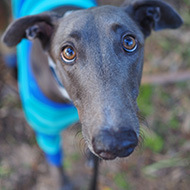Scotland expected to ban greyhound racing

The Scottish Animal Welfare Commission will respond by Wednesday, 9 November.
The Scottish government could outlaw greyhound racing, as a government commission is set to discuss a 13,160-strong petition seeking a ban on the practice.
Following the significant response to the petition, the Scottish Animal Welfare Commission (SAWC) will issue a 'pivotal recommendation' on greyhound racing. If the SAWC advises against the practice, the government could then set a ban in motion.
Scotland Against Greyhound Exploitation (Sage) submitted the petition, and demanded a response this week, as Dogs Trust, Scottish SPCA, RSPCA and Blue Cross have called for an end to the sport.
Sage chairwoman Gill Docherty told The Times: We believe that they will say we think it should be banned in Scotland. Wednesday is pivotal, if they come out and ban it, the government is going to have to act on that. I’m feeling very optimistic.
“If you stripped away all the concerns about how [the dogs are] kept, that they’re drugged, that they’re discarded at the end, dogs will still die on the tracks. You can’t remove that risk so it needs to go.”
In September, the RSPCA, Dogs Trust and Blue Cross highlighted data from the Greyhound Board of Great Britain (GBGB), which showed that over 2,000 greyhounds died from racing between 2018 and 2021 in the UK.
The same data also revealed that almost 18,000 injuries were recorded between 2018 and 2021, with further injured on independent tracks.
Speaking to The Times, Paul Brignal, owner of the unregulated Thornton greyhound stadium in Fife, discussed his position: “Sage keeps banging on about there being 18,000 injured dogs and 3,000 deaths but we only have about 70 dogs left in racing. We’ve had two serious injuries this one year and one dog sadly died. But accidents can happen in every sport.
“My main concern is Sage takes stats that come from all of the UK and the reality is that big tracks in England operate entirely differently to Scotland. In Scotland we’re lucky to get 1,000 runs from all Scottish dogs in a year.”
The SAWC has been given an extension for their response, which will be published on Wednesday, 9 November.



 BSAVA is to partner with BVA Live (11-12 June 2026) to champion clinical research.
BSAVA is to partner with BVA Live (11-12 June 2026) to champion clinical research.